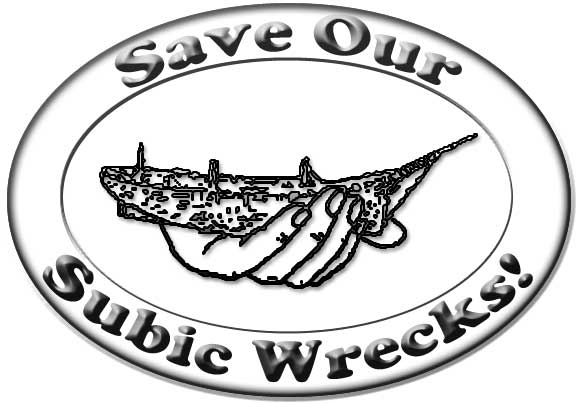Respect Our Wrecks Philippines Policy
Respect Our Wrecks is intended as a philosophical approach to one of the most popular diving activities in the Philippines; wreck diving, which is enjoyed by many thousands of local and tourist divers every year.
We believe that raised awareness of these issues will also result in increased peer pressure amongst divers, government and local populations to curb the poor wreck preservation practices being conducted by the few. Local sport diving operations, representing a wide variety of scuba agencies, along with local divers, local authorities and legislatory bodies should strive to effectively work together to make sure we can keep enjoying the wrecks, enjoying the prosperity gained from environmental protection, increased tourism revenue and cleaner, greener oceans.
A variety of legal and illegal practices cause immense damage to underseas wrecks, even desecrating war graves. Not only are they spoiling wrecks for future divers, they may be breaking the law and in some cases upsetting the relatives of those that have lost their lives on the ships.
Wrecks play a vital role in the rich tapestry of a nation’s history -often being a record of significant historic events, both for the host nation and also the other nations concerned. In Subic Bay, the shipwrecks currently being damaged have significant historical value in respect to the Spanish-American War, World War Two and the post-war stationing of American forces. Spanish, Japanese, American, as well as Philippines history is recorded on the sea-floor of Subic Bay.
Illegal salvage operations and destructive fishing practices are destroying our history and the marine environment, often for small immediate profit, but with long term consequences for the marine environment and tourism potential in effected areas.
Some practices are endangering life by bringing live munitions or other dangerous material ashore or leaving explosive salvage materials in wrecks frequented by sports divers.
Respect our wrecks today so that everyone can still enjoy them tomorrow.
1. Respect War Graves
Several of Subic Bay’s wrecks are also war graves. Treat them with the respect you would give a church or graveyard. Many Filipinos, Americans, Australian’s, British and even Japanese military personnel died on those wrecks. Let them lie in peace.
2. Respect the Wreck Environment.
Wrecks make critical habitats for marine life, not only providing a home for local reef fishes, but also creating ‘cleaning stations’ that attract pelagic animals. Treat the wrecks with the same care and level of protection that you would give to coral reefs.
3. Respect the Future
Explore wrecks, where allowed, but don’t damage or disturb them. Take photos rather than souvenirs. Do not salvage metals or other objects from wrecks, so that our wrecks remain for future divers to see. Thousands of foreign and local divers visit Subic Bay each year specifically to scuba dive on the wrecks. If the wrecks go, then tourists will no longer visit the area – resorts, shops and restaurants will close, employees will lose their jobs, suppliers will lose contracts, taxis and trikes will have no passengers, A preserved shipwreck offers exponentially more long-term income for a region, than the cumulative scrap value of its metal. The disappearance of wrecks will ultimately lead to the disappearance of tourists…and the end of tourist financial income for the region.
4. Respect History, Culture and Heritage
Many wrecks have an important history and hold clues to our maritime past. The Philippines has a rich historical past, being involved in world-shaping events. This is the Filipino’s cultural heritage. If you find anything valuable on a wreck, report it to the appropriate local authorities, who will pass on such information to archaeological experts. Currently, much material is being taken from Subic Bay’s wrecks – only to be sold as scrap metal. If you see this damage being caused, or these materials being sold – please report this to the local police or harbor authority.
5. Respect Yourself
Make sure that you are appropriately trained for safe wreck diving. Don’t use explosives (homemade or otherwise) to salvage wreck materials. Don’t catch or eat fish from wreck sites – many toxic species (stonefish, scorpionfish, lionfish and blowfish) reside on those sites.
6. Respect Your Family and Friends
Some wrecks contain dangerous cargoes or live munitions. Don’t disturb them or bring them ashore. Don’t use explosives to damage wrecks – this makes the wrecks unstable, which could kill a visiting scuba diver who later visits the wreck. Unexploded dynamite may also detonate later, killing an innocent scuba diver.
7. Respect the Law
Know and respect maritime laws and local harbor legislation – and avoid criminal prosecution.

